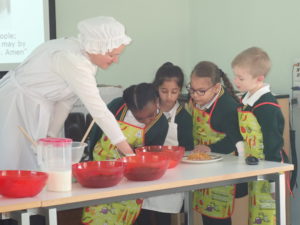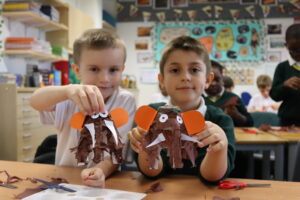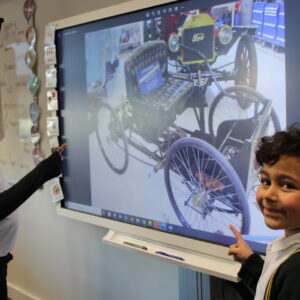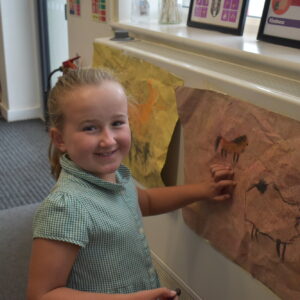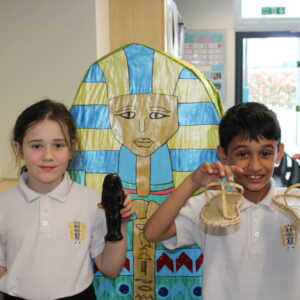We use the study of history to help pupils become persistent, courageous, organised, motivated and independent, building up their history knowledge and skills to help young people make wise choices when confronted with dilemmas today by learning how similar dilemmas were dealt with in the past. Pupils gain a coherent knowledge and understanding of Britain’s past and that of the wider world, inspiring pupils’ curiosity to know more about the past. Pupils are equipped to ask perceptive questions, think critically, weigh evidence, sift arguments, and develop perspective and judgement. To understand the complexity of people’s lives, the process of change, the diversity of societies and relationships between different groups, as well as their own identity and the challenges of their time.
EYFS
History is taught in reception as an integral part of the topic work covered during the year through the International Primary Curriculum (IPC). We relate the historical aspects of the children’s work to the objectives set out in the Early Years curriculum which underpin the planning for children aged three to five. History makes a significant contribution to the ELG objectives of developing a child’s understanding of the world through activities such as investigating the history our local area.
Key Stage 1
By the end of Key Stage 1 the children study history from a wide array of viewpoints. From studies of particular areas and their developments to larger concepts for example the history and development of buildings. Key Stage 1 children develop the understanding that history is not place specific and that history has happened all around them and all around the world. They will also develop a good sense of where everyday objects and occurrences have their roots and origins. By the end of Key Stage 1, children are expected to be able to construct a timeline correctly, appropriately investigate and question a widening variety of sources (including artefacts) and use their growing knowledge of the time periods studied to meaningfully discuss the lives of significant individuals from the past.
Key Stage 2
By the end of Key Stage 2, the children are maturing and developing and as such the breadth of their study of history is widened even further. Children can clearly identify the areas of learning concerning the history of Great Britain and those that are associated with countries further afield. History is studied in chronological order, Year 3 studying the Stone Age to Iron Age and then Ancient Egypt. Studies continue in Key Stage 2 with children learning about the Romans, Greeks, Vikings and Normans, the Mayan, local history and an in-depth study of World War 2 showcase the wide variety and opportunity for history learning our curriculum offers. As well as building upon the skills picked up in Key Stage 1, children at the end of Key Stage 2 should be able to further use their knowledge, skills and understanding of history to gather, use and scrutinise their use of different sources as well as be able to identify the time period which they are concerning. They should also be able to start comparing time periods and recognise the cause and effect of different actions and events throughout time.
Our Leader of Learning for History is Mrs. K. Fernandes

